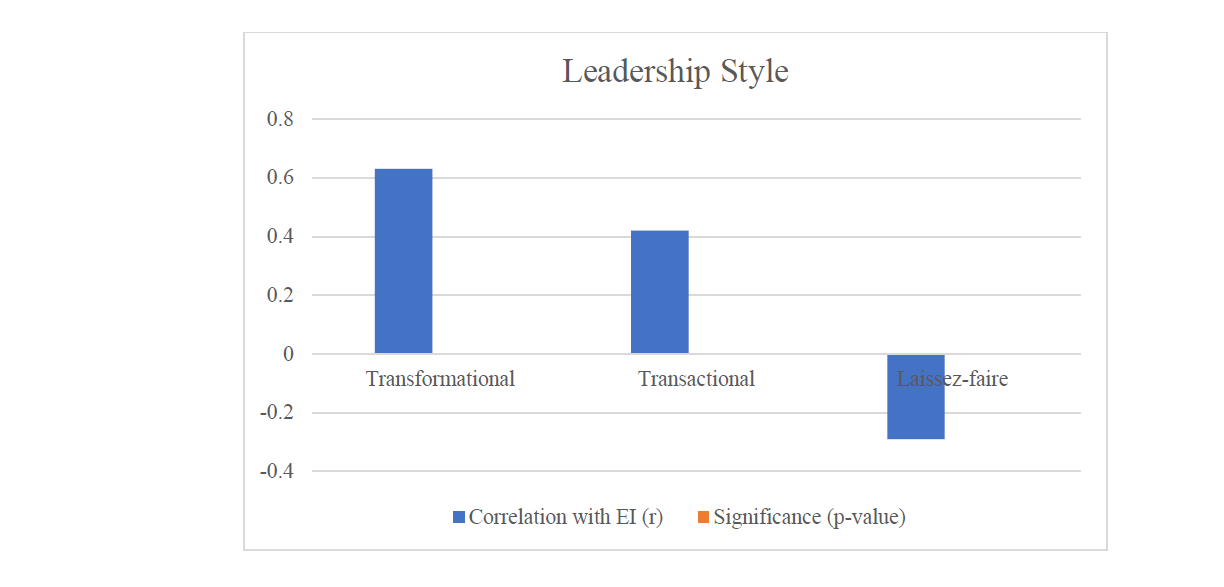A Comparative Study on The Role of Emotional Intelligence in Leadership Styles Among Mid-Level Managers
Keywords:
- Emotional Intelligence (EI), Leadership Styles, Mid-Level Managers, Transformational Leadership, Multifactor Leadership Questionnaire (MLQ).
Abstract
This research examines the association between emotional intelligence (EI) and leadership styles of mid-level managers from different industries through a quantitative comparative study design. A total of 150 to 200 mid-level managers from a variety of industries, such as information technology, healthcare, education, banking, and manufacturing, were measured with two established psychometric instruments: the Wong and Law Emotional Intelligence Scale (WLEIS) to quantify EI on four dimensions (self-emotion appraisal, others' emotion appraisal, use of emotion, and regulation of emotion) and the Multifactor Leadership Questionnaire (MLQ) to determine leadership styles (transformational, transactional, and laissez-faire). Data analysis, which was carried out with SPSS version 25.0, had the following results: mid-level managers were characterized by fairly high EI, especially in emotion regulation, with transformational leadership style being the most prevalent. According to correlation study, EI is negatively correlated with laissez-faire leadership but positively correlated with transformational and transactional leadership. Gender affected EI levels quite strongly, with women demonstrating higher EI, whereas experience had a positive effect on transformational leadership tendencies. Regression analysis validated that all four EI dimensions were significant predictors of transformational leadership, and the strongest predictor was self-emotion appraisal. The results highlight the value of emotional intelligence in developing leadership effectiveness, specifically transformational leadership, and offer practical implications for organizations looking to create emotionally intelligent leaders. Longitudinal effects of EI on leadership development are an area to be studied by future research, and the impact of organizational culture must be taken into account..






